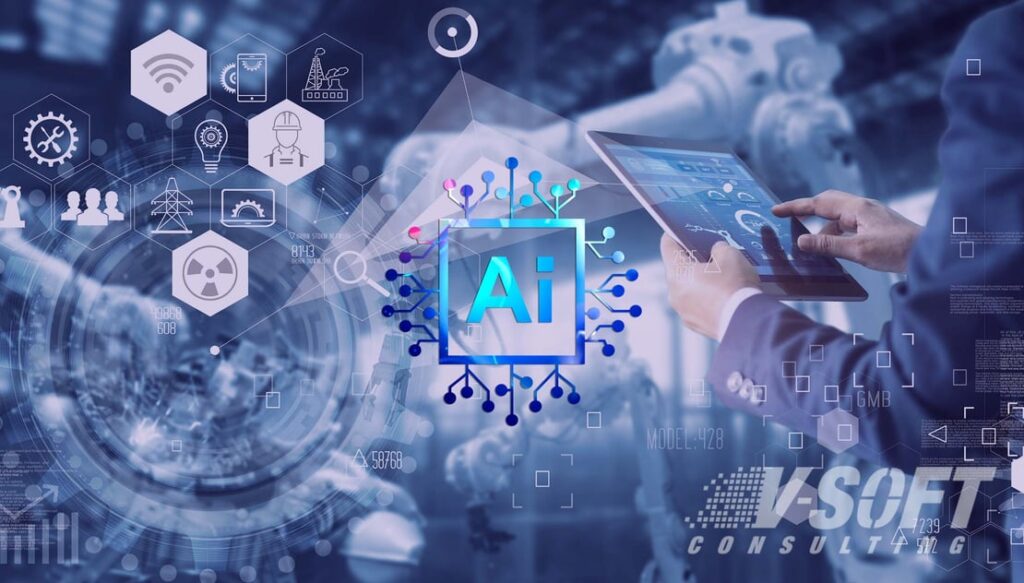In today’s fast-paced business environment, the integration of artificial intelligence (AI) and automation is revolutionizing the way we work. “AI In Business: How Automation Is Changing Workplaces” delves into the transformative impact of these technologies on various industries. From streamlining operations to enhancing decision-making processes, AI is not just a trend; it is a fundamental shift that is reshaping the future of work. As organizations increasingly adopt automated solutions, understanding the implications of this change becomes crucial for both employers and employees alike.
This article will guide you through the key aspects of AI and automation in the workplace, highlighting their benefits and challenges. You will learn how businesses are leveraging AI to improve efficiency, reduce costs, and foster innovation. Additionally, we will explore real-world examples of companies that have successfully implemented automation strategies, providing insights into best practices and lessons learned. As we navigate through the complexities of this technological evolution, you will discover the skills that are becoming essential in an automated workforce.
As you continue reading, prepare to uncover the future landscape of work shaped by AI and automation. Whether you are a business leader looking to stay ahead of the curve or an employee eager to adapt to new technologies, this article offers valuable information that can help you thrive in an increasingly automated world. Join us on this journey to understand how AI is not only changing workplaces but also redefining the very nature of work itself.
The Rise of Robotic Process Automation (RPA)
Robotic Process Automation (RPA) is revolutionizing the way businesses operate by automating repetitive tasks. This technology allows organizations to streamline processes, reduce human error, and increase efficiency. RPA can handle tasks such as data entry, invoice processing, and customer service inquiries, freeing up employees to focus on more strategic activities.
As companies adopt RPA, they experience significant cost savings and improved productivity. By automating mundane tasks, businesses can allocate resources more effectively and enhance overall performance. The integration of RPA into existing workflows is becoming increasingly common, making it a vital component of modern business strategies.
Enhancing Customer Experience with AI
Artificial Intelligence is playing a crucial role in enhancing customer experience across various industries. AI-driven chatbots and virtual assistants provide 24/7 support, answering customer queries and resolving issues in real-time. This not only improves customer satisfaction but also reduces the workload on human agents.
Moreover, AI can analyze customer data to offer personalized recommendations, creating a more tailored shopping experience. Businesses that leverage AI for customer engagement are likely to see increased loyalty and higher conversion rates, as customers appreciate the convenience and relevance of AI-driven interactions.
Data-Driven Decision Making
Automation powered by AI enables businesses to harness the power of data analytics for informed decision-making. By automating data collection and analysis, organizations can gain insights into market trends, customer behavior, and operational efficiency. This data-driven approach allows companies to make strategic decisions based on real-time information rather than relying on intuition.
Furthermore, predictive analytics can forecast future trends, helping businesses to stay ahead of the competition. By integrating AI into their decision-making processes, companies can optimize their strategies and improve overall performance, leading to sustainable growth.
Workforce Transformation and Upskilling
The integration of automation in the workplace is transforming the workforce landscape. As routine tasks become automated, employees are required to develop new skills to adapt to changing job roles. Upskilling and reskilling initiatives are essential for organizations to ensure their workforce remains competitive in an increasingly automated environment.
Companies that invest in employee training and development not only enhance their workforce’s capabilities but also foster a culture of innovation. By empowering employees to embrace new technologies, businesses can create a more agile and adaptable organization, ready to tackle future challenges.
The Impact of AI on Job Roles
While automation brings numerous benefits, it also raises concerns about job displacement. Certain roles may become obsolete as machines take over repetitive tasks. However, it’s important to recognize that AI is also creating new job opportunities in areas such as AI development, data analysis, and cybersecurity.
Organizations must navigate this transition carefully, ensuring that employees are supported through the changes. By focusing on collaboration between humans and machines, businesses can leverage the strengths of both to drive innovation and growth.
Ethical Considerations in AI Implementation
As businesses increasingly rely on AI and automation, ethical considerations become paramount. Issues such as data privacy, algorithmic bias, and transparency must be addressed to build trust with customers and stakeholders. Organizations need to establish clear guidelines for the ethical use of AI technologies to mitigate potential risks.
Moreover, fostering an ethical culture within the organization can enhance brand reputation and customer loyalty. By prioritizing ethical AI practices, businesses can ensure that their automation efforts align with societal values and contribute positively to the community.
| Aspect | Description |
|---|---|
| Introduction | Automation through AI is transforming workplaces by enhancing efficiency, reducing costs, and improving decision-making processes. |
| Efficiency | AI automates repetitive tasks, allowing employees to focus on more strategic activities, thus increasing overall productivity. |
| Cost Reduction | By minimizing human error and streamlining operations, businesses can significantly lower operational costs. |
| Data Analysis | AI systems can analyze vast amounts of data quickly, providing insights that help in making informed business decisions. |
| Customer Service | Chatbots and virtual assistants powered by AI enhance customer service by providing instant responses and support. |
| Workforce Transformation | As automation takes over routine tasks, the workforce is shifting towards roles that require creativity, problem-solving, and emotional intelligence. |
| Challenges | While automation offers many benefits, it also poses challenges such as job displacement and the need for reskilling employees. |
| Future Outlook | The future of work will likely involve a hybrid model where humans and AI collaborate, leading to new opportunities and innovations. |



